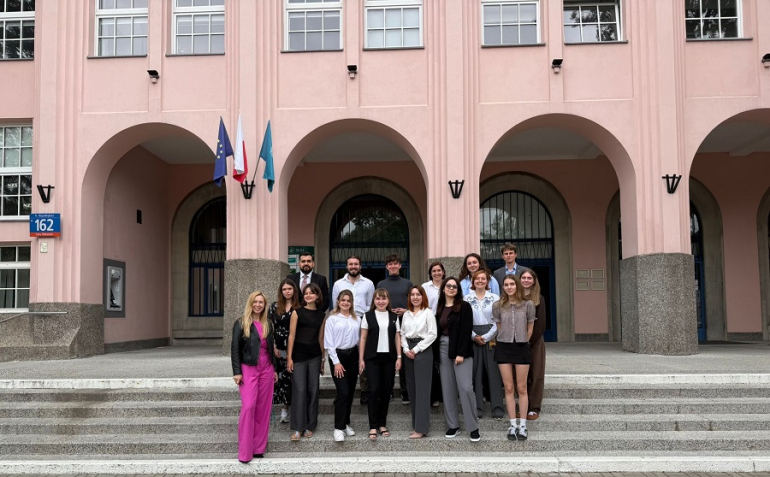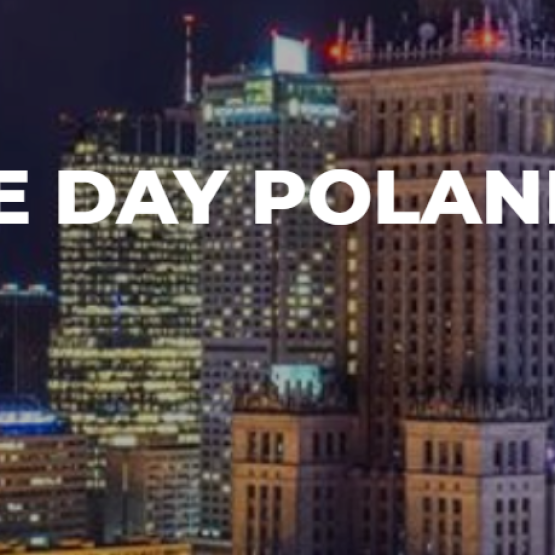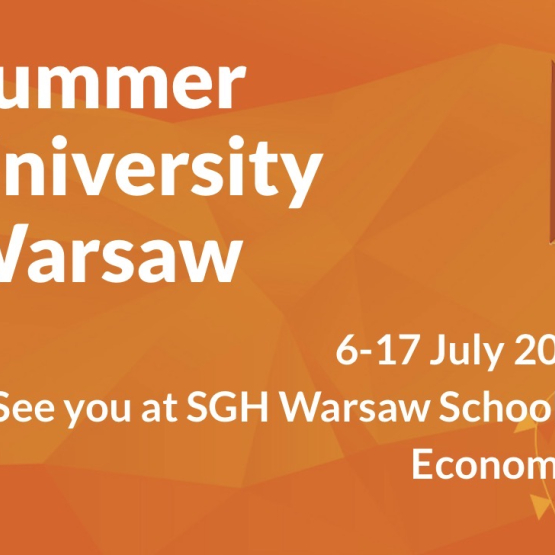
From July 30 to August 4, 2025, the SGH Warsaw School of Economics hosted an international project aimed at fostering academic and cultural exchange between students from Poland and Ukraine. The initiative brought together students from SGH and the Kyiv School of Economics, creating a space for dialogue, reflection on the future of Europe, and collaborative learning. The programme combined educational content with intercultural and civic engagement, encouraging meaningful connections between participants.
The project was organised by Dr Iryna Degtyarova, the rector’s plenipotentiary for cooperation with Ukrainian universities, and the SGH European Union Society. As a continuation of SGH’s long-standing academic cooperation with Ukrainian institutions, the initiative built on Dr Degtyarova’s consistent efforts to foster international partnerships and support Ukrainian students. Her experience and dedication played a crucial role in creating an open and thoughtful environment for exchange.
Equally important were the personal reflections of participants, particularly those from Ukraine. Students from the Kyiv School of Economics shared how valuable international cooperation remains during wartime.
This was more than just a project between KSE and SGH – it was a platform for building understanding between Poland and Ukraine and for learning how European cooperation works in practice. I’m grateful to have been part of it. I truly appreciated the opportunity to deepen my knowledge of the EU and to build meaningful connections through diverse formats of interaction – said Victoriya Hermanchuk (KSE).
The programme featured panel discussions, workshops, and a range of joint activities. One highlight was a discussion on student activism and youth organisations. Marta Ekner (SGH) presented the work of the SGH Student Government and its role in university life. Victoriya Hermanchuk (KSE) offered insights into student activism in Ukraine under the challenging conditions of war. Gaweł Olawa (SGH European Union Society) spoke about the role of student associations in shaping academic engagement, while Danylo Zvarych (Student Association for the Recovery of Ukraine) reflected on initiatives led by Ukrainian students studying in Poland. The exchange of ideas and good practices sparked important conversations about future cooperation between student communities.
Participants also took part in a session dedicated to reflecting on Poland’s Presidency of the Council of the European Union. Karolina Kaliszewska shared behind-the-scenes insights into how the presidency’s events were organised and explained the roles of liaison and accreditation officers. The session offered a closer look at the challenges involved in preparing and managing high-level events at the European level.
Polish and Ukrainian students also visited the Europa Experience centre in Warsaw, where they took part in an interactive simulation of a European Parliament session. This hands-on activity allowed them to better understand how EU institutions work and highlighted the complexities of shaping public policy at the European level.
The programme also included a workshop on intercultural communication, led by Dr Anna Masłoń-Oracz from the International Strategies Unit, as well as a policy simulation workshop facilitated by Thomas Barrett from the Kyiv School of Economics. The latter offered students a chance to step into the shoes of EU decision-makers and negotiate within realistic political scenarios.
The project showed that cross-border collaboration among young people is not only possible – it is essential. It helped participants develop new knowledge, broaden perspectives, and most importantly, build relationships that are likely to continue and grow in the years ahead.



